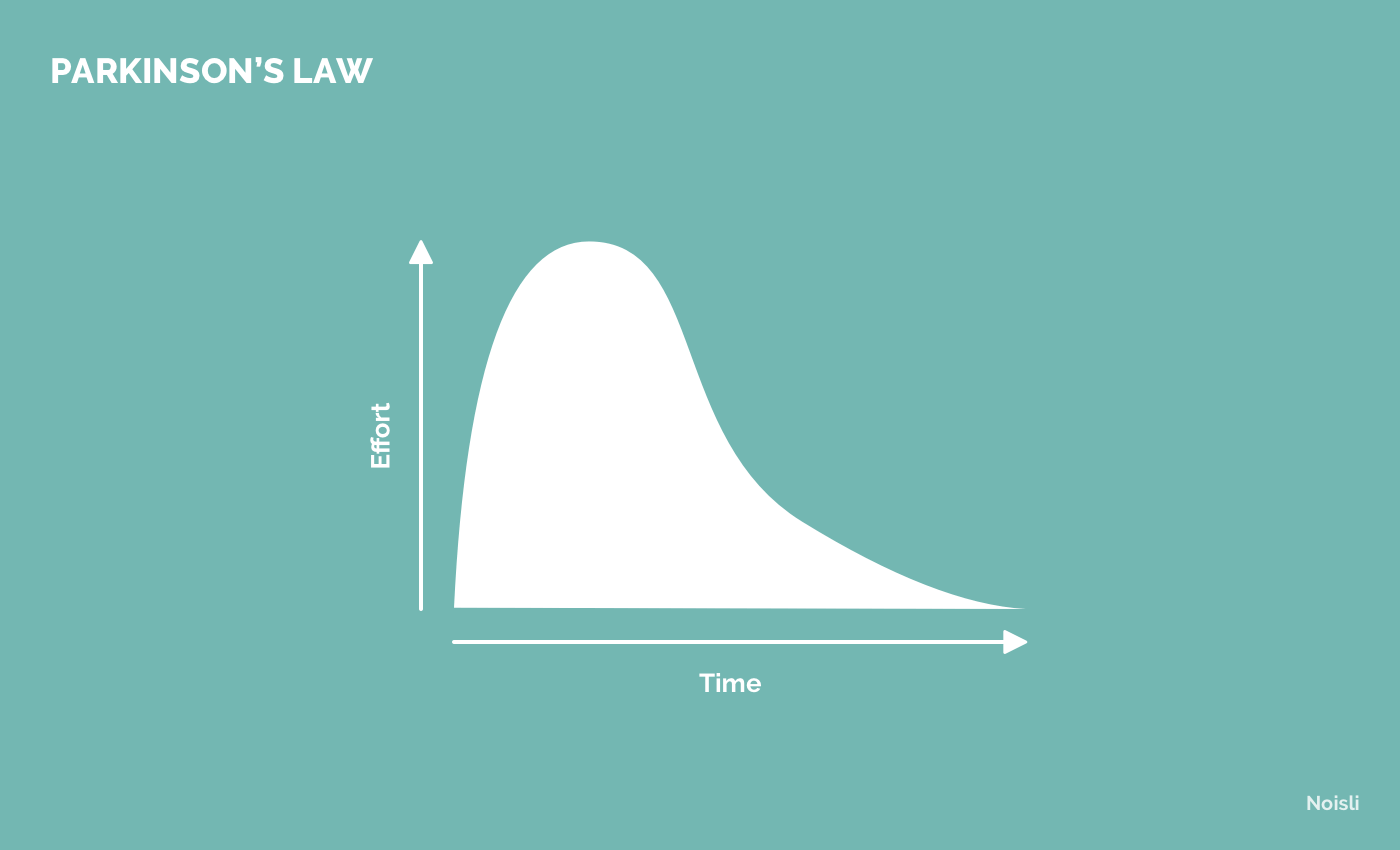Parkinson’s Law: what it is and how you can learn from it
Productivity
Parkinson’s Law is the saying that
If you wait until the last minute, it only takes a minute to do.
Originally, this concept was articulated by Cyril Northcote Parkinson published in The Economist in 1955. In this article Parkinson describes how bureaucracies expand over time and how “Officials make work for each other.”

Parkinson found that with the growth of organizations, complexity raises to fill up the time allotted to it, resulting in a decrease in efficiency. On the other hand, he also noted that by decreasing the time allocated to a task, the task becomes simpler and easier to solve.
Having less time at your disposal can help you to leave out clutter and unnecessary stuff, focusing only on the important things to get the task done.
Being time one of the most precious resources we have, this is a good way to remind us to not spend our time inefficiently.
How to use Parkinson’s Law in your daily life
Situations in which you’re struggling to finish a task or where you find yourself procrastinating are usually a sign that you have too much time at your disposal.
Let’s make an easy example:
It’s morning and you have a flight in the evening at 9 pm.
You’ll probably start packing the suitcase right in the morning, but you’ll not close it until right before leaving your house. The whole day you will worry about it and you’ll have this ongoing task lingering around until the taxi comes to finally pick you up.
That’s Parkinson’s law.
Does preparing your suitcase really take a whole day?
No, it doesn’t, but it somehow does, unless you allocate to it a limited amount of time, finish it and enjoy the rest of your day.
Unless you allocate a limited amount of time to a taks, the task will expand in complexitiy so to fill the time available to it.
Takeaway
To take advantage of Parkinson’s law for every task you encounter, you can follow 4 simple steps:
1. Set deadlines
Set deadlines for big projects but also for small and simple tasks. They should be realistic and feasible.
2. Break big projects in small, actionable tasks
You should always know what the next step is and never feel overwhelmed or clueless on where to start. If you’re working on a bigger project, make sure you have milestones along the way and evaluate if you’re not adding too much complexity to it. Break everything down in actionable steps.
3. Set a specific time frame for each task
Start a task with a goal and time frame in mind by when you want to finish it. For smaller and easy tasks, be very severe and respect the time frame you’ve set to work on the task.
You can use an efficient productivity method such as the Pomodoro Technique to schedule those time frames.
4. Follow through and respect your own time
If you have given yourself 2 hours to finish up an article, that’s the only time you’ve got to get it done. Show no mercy and be very strict with yourself, especially if you’re working for your own or if you’re freelancing.
Knowing that you won’t have more time, will help you to focus on the task at hand and free up more time to accomplish other things throughout your day.
P.s.: If you find it hard to stick to your set deadlines, a simple but easy trick is to schedule something right after it, like a meeting with a friend etc.



